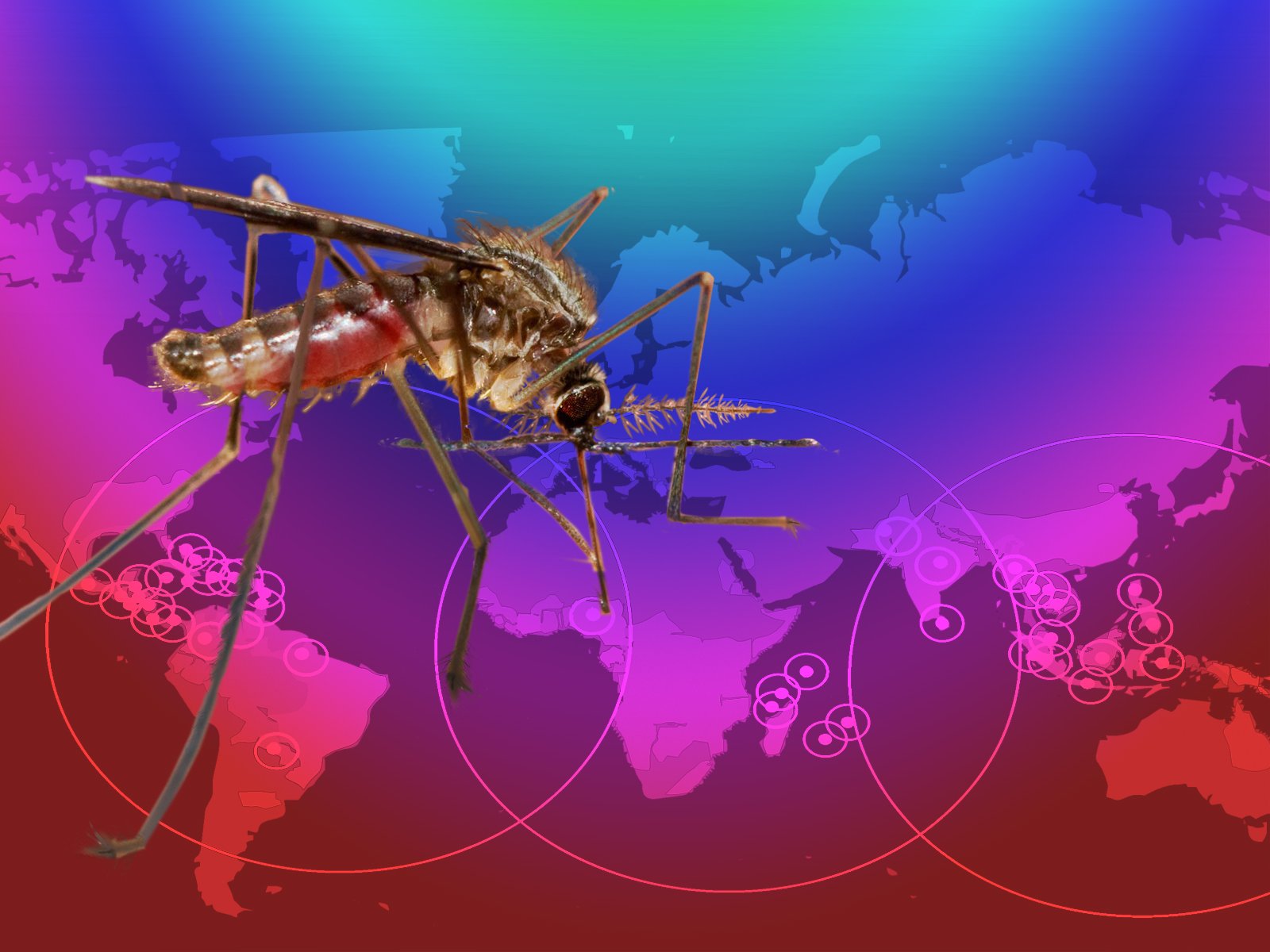The diagnosis of a Borrelia infection is not always easy. There are cases in which the symptoms are not initially associated with a tick bite or are atypical. Serological testing is not indicated in the early stages of Lyme disease, but can be very informative in later stages. IgM antibodies are indicative of acute Lyme disease and IgG antibodies are formed in the later stages, which can be detectable for life.
The common wood tick (Ixodes ricinus) is the most common carrier of Borrelia in Europe. While Borrelia burgdorferi sensu stricto is predominantly found in the USA, Borrelia of the Borrelia burgdorferi-sensu-latu complex, in particular Borrelia afzelii (B. afzelii) and Borrelia garinii (B. garinii), are primarily found in Europe. Lyme borreliosis is divided into three stages, whereby there are also atypical courses: early localized, early disseminated and late disease [1,2]. “Erythema chronica migrans is a very characteristic skin change,” reported Dr. med. Maya Wolfensperger, Head Physician, Institute of Dermatology and Venereology, Zurich City Hospital [2]. “It occurs a few days to a month after the tick bite,” said the speaker [2]. Erythema chronicum migrans can occur with or without systemic symptoms. Associated symptoms include fatigue, headaches, neck stiffness, myalgia, arthralgia and regional lymphadenopathy.
Only a quarter of all people affected by a tick bite remember the tick bite. The axilla region, the back of the head (e.g. in small children) and the inguinal region are critical locations.
Acrodermatitis chronica atrophicans: a late-stage manifestation
Erythema chronica migrans can also have atypical features, such as ulceration in the center, or it can be bullous. “It takes a few days for it to fade in the center,” reported Dr. Wolfensperger [2]. With regard to early disseminated disease, the speaker emphasized that the presence of multiple erythema migrans is an early hematological dissemination [2,3]. “This occurs weeks to months after infection and may also be associated with neurological or cardiac findings,” the speaker reported [2]. Some of these patients have no history of early localized Lyme disease. Clinical manifestations of early disseminated disease include, for example, a triad of meningitis, cranial nerve palsies and radiculoneuropathy; AV block, myopericarditis, but also eye involvement (e.g. conjunctivitis, keratitis, etc.) are possible. Among the skin manifestations, multiple erythema migrans and lymphocytomas(B. afzelii) are characteristic of this stage. The latter often occurs on the earlobe in children and in the chest area in adults.
“The late disease, which can occur several months to years after the infection, initially manifests itself as edematous, reddish, on the acrals,” explained Dr. Wolfensperger [2]. If this persists, it leads to acrodermatitis chronica atrophicans (0.5-8 years after initial infection). According to the speaker, this does not occur in patients who have been treated in the early phase of a Borrelia infection [2]. Other manifestations of a late stage are arthritis and neuropathy.
Lyme disease during pregnancy does not lead to congenital anomalies or fetal death if treatment is carried out [4]. Of course, pregnant women should not be treated with tetracyclines, but with amoxicillin or ceftriaxone, the speaker explained [2]. Borrelia bacteria are not transferred into breast milk, so breastfeeding is safe.
In which cases should serology be considered?
A Borrelia PCR and Borrelia serology using an enzyme immunoassay are available for the detection of an infection, explained PD Dr. sc. nat. Philipp Bosshard, Senior Assistant, Department of Dermatology, University Hospital Zurich [2]. PCR from the tick, PCR from the blood, lymphocyte transformation tests, blood droplets, blood smears are of no value. In the early stage of Lyme disease (“localized disease”, erythema chronica migrans), no laboratory diagnostics are recommended. This is because the sensitivity at this stage is low at 20-50%. “You can’t do anything with a negative result and with a positive result you are not entirely sure”, the speaker pointed out [2]. Serology is therefore not suitable in the first stage of Lyme disease (Table 1). “But in later stages, serology has a very good sensitivity,” reported Dr. Bosshard, adding that this is over 80% (Tab. 2) [2]. In the later stages of Lyme disease, both the positive predictive value and the negative predictive value are high, so that a high reliability is given. After a Borrelia infection, IgM is usually formed first (2-4 weeks after the onset of the disease) and IgG somewhat later (6-8 weeks after the onset of the disease). As part of the serological clarification, screening is first carried out using an enzyme-linked immunosorbent assay (ELISA), followed by a confirmatory test using an immunoblot. The number of bands in the immunoblot increases over time. The further back the infection is, the more bands become positive. What should not be forgotten is the factor of seroprevalence/seronarcosis, i.e. that antibodies against Borrelia are also found in healthy people. This is the case in around 5% of women and 10% of men, with the frequency increasing in line with age [1,5].
Congress: Zurich Dermatology Training Days (ZDFT)
Literature:
- “Diseases caused by tick bites – Lyme disease”, www.lgl.bayern.de,(last accessed 07.06.2024)
- “Borrelia”, Dr. Med. Maya Wolfensperger, PD Dr. sc. nat. Philipp Bosshard, ZDFT, 21.06.2024.
- Ogrinc K, et al: Course and Outcome of Early European Lyme Neuroborreliosis (Bannwarth Syndrome): Clinical and Laboratory Findings. Clin Infect Dis 2016; 63(3): 346-353.
- Strobino B, Abid S, Gewitz M: Maternal Lyme disease and congenital heart disease: a case-control study in an endemic area. Am J Obstet Gynecol 1999; 180: 711.
- Wilking H, et al: Antibodies against Borrelia burgdorferi sensu lato among Adults, Germany, 2008-2011. Emerg Infect Dis 2015; 21(1): 107-110.
DERMATOLOGIE PRAXIS 2024; 34(4): 34-35 (published on 30.8.24, ahead of print)














